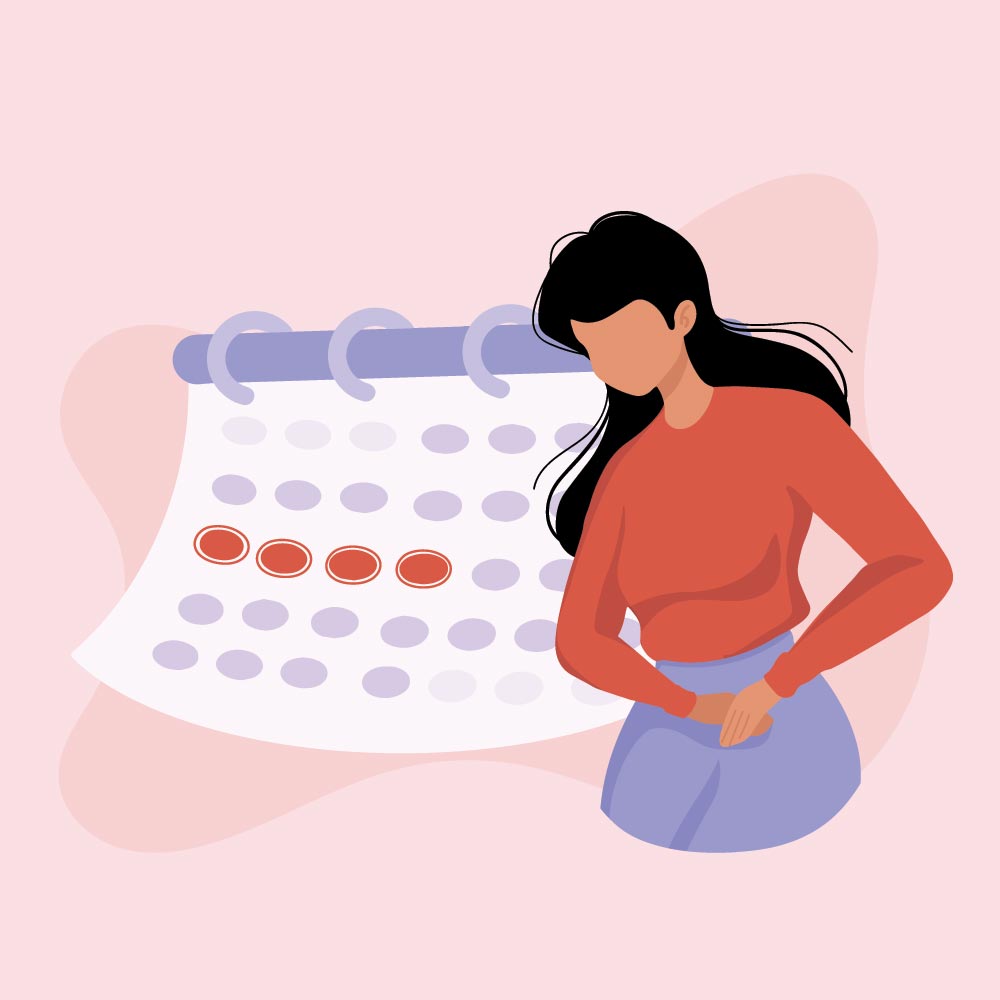Changes in periods and unexpected vaginal bleeding after receiving the Covid-19 vaccine, according to an esteemed immunologist who specialises in fertility, should be studied to reassure women.
Dr Victoria Male of Imperial College London wrote in the BMJ (a peer-reviewed medical journal) that the body's immune reaction, not something in the immunisations, was the likely culprit. However, there is no evidence that they affect fertility or pregnancy.
More than 30,000 reports of period issues have been received by the UK's regulator. Out of more than 47 million doses administered to women in the UK to far, these include heavier than usual periods, delayed periods, and unexpected bleeding. These symptoms were experienced by women after receiving Pfizer, Moderna, AstraZeneca and Johnson & Johnson jabs.
The Medicines and Healthcare Products Regulatory Agency (MHRA) said it "does not support a link" between Covid vaccinations and the symptoms after evaluating the cases. Menstrual abnormalities are relatively prevalent, can be caused by a variety of factors, and impact just a small percentage of women, according to the report.
Some women have observed alterations in their periods following infection with the virus and after long Covid. In an opinion piece published in the BMJ, Dr Male writes that "solid study" into allegations of period issues would help to dispel myths about vaccines. Young women's vaccine apprehension stems mostly from incorrect assertions that the Covid-19 vaccine will impair their chances of becoming pregnant in the future. Failure to fully evaluate claims of menstruation abnormalities following vaccination is likely to exacerbate these concerns. This knowledge will allow people to plan for potentially altered periods if a relationship between vaccination and menstrual alterations is verified," she said.
Women who rely on being able to predict their cycles need "clear and credible information," according to Dr Male, a lecturer in reproductive immunology. In future, she stressed, the impact of any medical intervention on menstruation should not be "an afterthought."

Scientists are yet unsure how immunisations could affect menstrual cycles. They could be caused by immune cells behaving differently in the uterine lining, or they could be linked to the impact of the immune system—which is activated by the vaccine—on hormones that drive the menstrual cycle.
Other vaccines, such as HPV (human papillomavirus), have been associated with similar menstrual alterations, although little research has been done into how and why this occurs.
Vaccines do not affect a woman's capacity to bear a child, according to scientists. Vaccination does not affect women's odds of falling pregnant naturally or during fertility treatment, according to studies. Male fertility following vaccinations has also been found to not affect sperm quality.
Changes in periods could be alarming, according to Dr Jo Mountfield, vice-president of the Royal College of Obstetricians and Gynaecologists (RCOG), although they usually only lasted one or two cycles.
She advised anyone who is experiencing unusually copious bleeding, particularly after menopause, to seek medical attention, although she stressed that there was no risk of long-term harm. "There is no evidence to suggest that these temporary changes will have any impact on a person's future fertility, or their ability to have children," Dr Mountfield said.
The Royal College of Obstetricians and Gynaecologists (RCOG) stated that vaccination was the "greatest protection" against coronavirus, especially if planning a pregnancy because unprotected pregnant women have a higher risk of becoming critically ill from Covid than other women their age.
It is also recommended for greater investigation into why women's menstrual cycles may shift after receiving the vaccine.